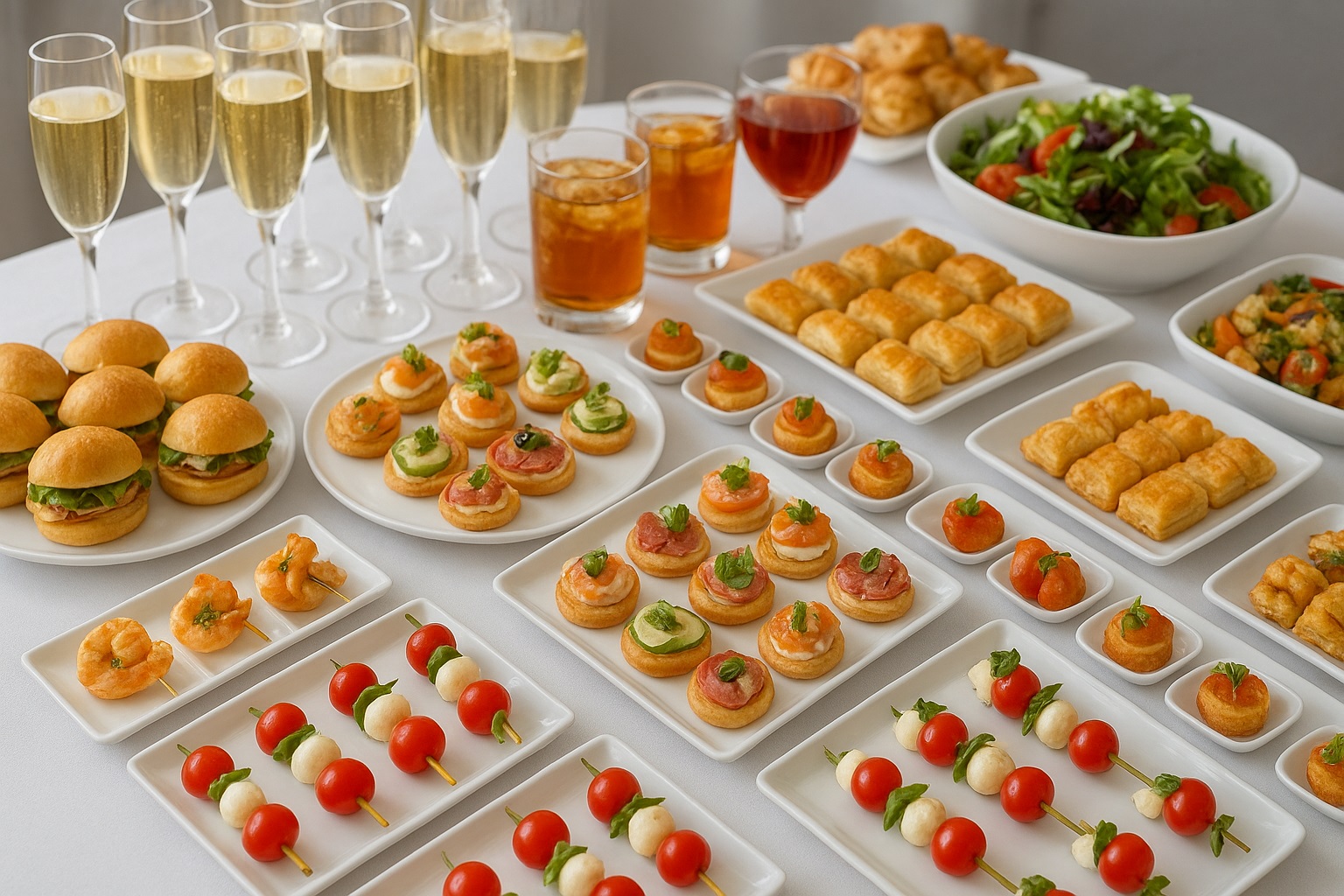Trademark Registration for Catering of Food and Drinks
21-Aug-2025
By Chandra Kant Dwivedi (Advocate & IPR Consultant)
Trademark Registration for Catering of Food and Drinks in Class 43
Trademark Registration for Catering of Food and Drinks
Catering of food and drinks is an essential service in the hospitality and events industry. From weddings, corporate events, social gatherings to private dining, catering services ensure guests enjoy delicious meals and beverages with professional presentation. Given the highly competitive nature of this sector, protecting your brand through trademark registration in Class 43 is crucial for legal security, brand recognition, and market positioning.
Understanding Class 43 and Its Importance
Trademark classification plays a significant role in ensuring proper protection of services. Catering of food and drinks falls under **Class 43** as per the NICE Classification (International Classification of Goods and Services). Class 43 covers services for providing food and drinks, temporary accommodation, restaurants, bars, cafés, and related services. If you operate a catering business, registering your trademark in this class safeguards your brand from infringement and misuse.
Why Trademark Registration for Catering of Food and Drinks is Important
1. **Brand Protection:** Trademark registration prevents others from copying or using your brand name without permission.
2. **Legal Ownership:** It provides you exclusive rights over your brand identity in catering services.
3. **Customer Trust:** A registered trademark builds trust and credibility among clients and partners.
4. **Market Differentiation:** In a crowded catering market, a trademark differentiates your services from competitors.
5. **Business Expansion:** A registered mark allows smooth expansion across regions and franchises without disputes.
Priority Suggestions for Name Search on Trademark Public Search Portal
Why is a Trademark Search Necessary?
A comprehensive search on the Indian Trademark Public Search Portal helps ensure that your proposed brand name is unique and does not conflict with existing trademarks in Class 43. This step minimizes the risk of objection or opposition during the registration process.
Steps to Conduct a Trademark Search:
1. Visit the official IP India website: [https://ipindiaonline.gov.in/tmrpublicsearch/frmmain.aspx](https://ipindiaonline.gov.in/tmrpublicsearch/frmmain.aspx)
2. Select **Class 43** for Catering of food and drinks services.
3. Search by **Wordmark**, **Phonetic**, and **Vienna Code** (if applicable).
4. Check for exact matches, similar names, or confusingly similar marks.
5. Avoid names that are generic, descriptive, or too similar to existing registered marks.
Determining a New Brand for Trademark Application
When creating a new brand name for catering services, keep the following in mind:
Choose a distinctive and creative name (e.g., **"Flavors & Feast"** instead of **"Food Catering"**).
Ensure the name is easy to pronounce, remember, and spell.
Avoid using common culinary terms or generic words like "catering" as the primary name.
Check for domain name availability for online branding.
Verify social media handles for consistency across platforms.
10 Reasons Why Catering of Food and Drinks Services Are Growing
1. Rising trend of destination weddings and corporate events.
2. Increasing demand for personalized and thematic catering experiences.
3. Growth of event management and hospitality industry.
4. Popularity of food festivals and culinary exhibitions.
5. Busy lifestyles driving outsourcing of catering for private functions.
6. Demand for high-quality beverage and mocktail services.
7. Expanding business in hotels, resorts, and luxury banquet halls.
8. Growth in online catering booking platforms and apps.
9. Increase in multicultural cuisines and fusion food trends.
10. Preference for hygienic, professional catering services post-pandemic.
10 Ways to Avoid Challenges and Conflicts with Other Marks in Class 43
1. **Conduct Comprehensive Trademark Search** before finalizing your name.
2. **Avoid Generic Terms** like "Catering Service" or "Food & Drinks" as primary identifiers.
3. **Choose Distinctive Names** that are creative and not descriptive of the service.
4. **Check Phonetic Similarity** to avoid confusion with existing marks.
5. **Check Domain and Social Media Availability** for branding consistency.
6. **Use Logos and Taglines** along with wordmarks for stronger protection.
7. **File in Correct Class (Class 43)** and consider multi-class filings if needed.
8. **Avoid Names Similar to Famous Brands**, even in other industries.
9. **Consult IP Professionals** to ensure compliance and reduce objection risk.
10. **Monitor the Trademark Journal** for conflicting marks during the application process.
How to Mitigate Rising Conflicts in Catering of Food and Drinks Trademarks
1. Register your trademark as early as possible to secure priority.
2. Opt for distinctive and suggestive marks instead of descriptive ones.
3. File for trademark protection in multiple jurisdictions if expanding globally.
4. Regularly monitor for infringement and take prompt legal action when necessary.
5. Use proper trademark symbols (™ after application, ® after registration).
6. Enter into trademark coexistence agreements in case of unavoidable similarity.
7. Maintain clear branding guidelines for franchisees and partners.
8. Renew your trademark periodically to maintain validity.
9. Educate staff and marketing teams about proper use of the trademark.
10. Work with legal experts to draft strong IP protection strategies.
Conclusion
Trademark registration for Catering of food and drinks under Class 43 is essential for establishing a unique brand identity in a competitive marketplace. From conducting a detailed name search on the Trademark Public Search Portal to choosing a distinctive brand name and adopting effective strategies to avoid conflicts, businesses must take a proactive approach to IP protection. With the growing demand for professional catering services, securing your brand with a registered trademark ensures long-term success, legal security, and market credibility.

